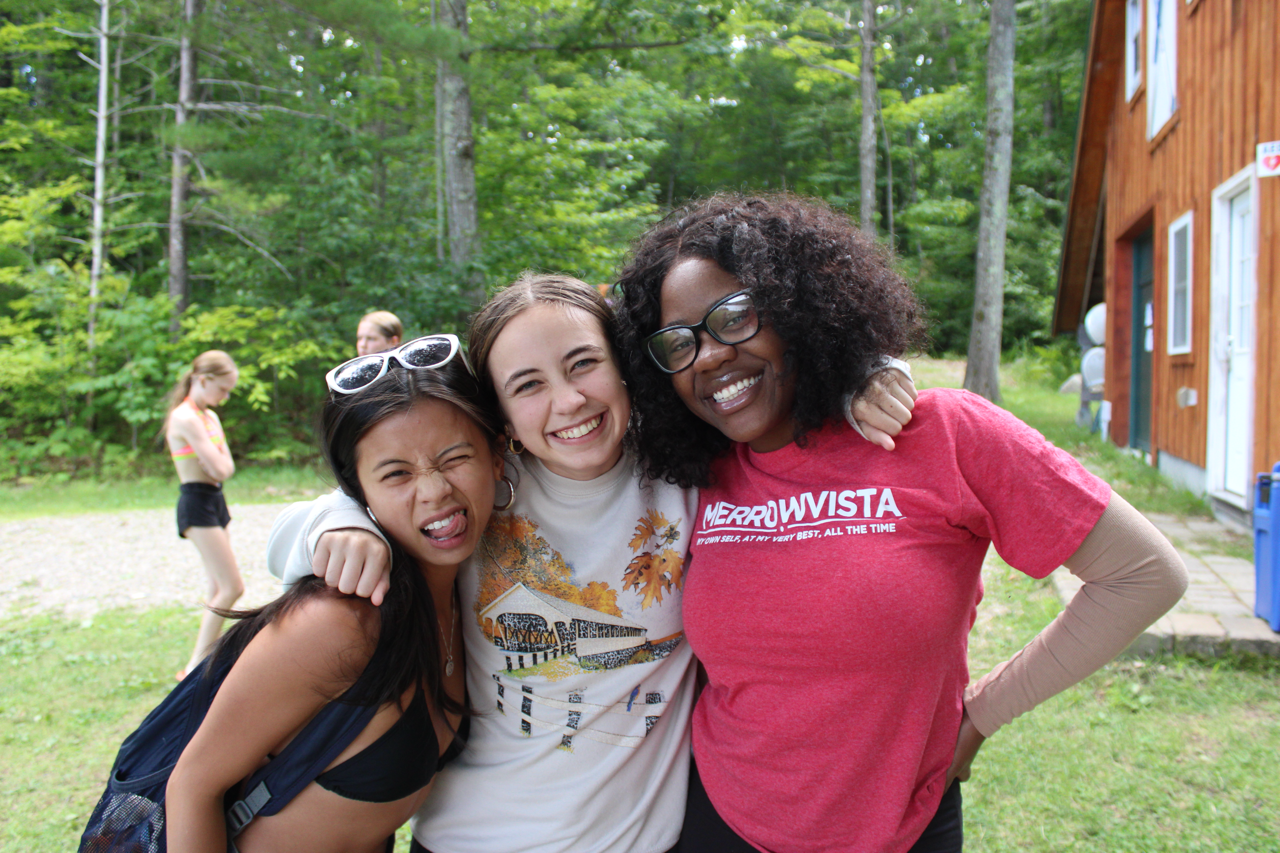At first glance, it may not be obvious how coordinating a high-energy skit or Night’s Doings correlates to an office environment. However, plenty of former seasonal Merrowvista and Miniwanca staff can attest that their summer camp jobs helped them flourish in their professional careers.
According to the American Camp Association, summer camp roles not only foster leadership skills and networking, but they also strengthen a person’s ability to solve problems creatively and communicate in a variety of situations.
The spontaneous nature of camp pushes staff members to think creatively and make sound judgments quickly, said Shane Hinde, National Leadership Conference volunteer and Miniwanca summer camp staff member.
“When you’re in a cabin with six 8-year-olds, you never know what each moment is going to bring,” he added with a chuckle.
Hinde has worked at Miniwanca for five years and has volunteered with NLC for 15 years. He said he learned traditional leadership skills through the NLC, but working at camp was an entirely new experience.
“When I stepped into the role as a cabin leader during my first summer, quite frankly, it was one of the most challenging jobs I’ve ever had,” he said. “The amount of people skills I developed to build relationships quickly with both campers and staff, develop positive dynamics, and engage with a wide range of different personalities has really carried its way through all of my professional endeavors.”
Hinde is now a small business consultant, helping companies in their startup stage. Before that, he ran a rock-climbing gym while working on his master’s degree. He then ran Phoenix Coffee in Cleveland, Ohio, for about eight years.
“The ability to problem-solve and the creativity and the people skills I gained as a seasonal staff member made me successful learning small businesses,” Hinde said.
Director of Merrowvista Amy Simmons said the while the summer camp programs are designed for the growth of participants, seasonal staff in their late teens and early 20s gain real-world value from their time at camp, too.
“Our seasonal staff have a tremendous responsibility for the wellbeing and safety of the campers in their care,” Simmons said. “They also learn skills like time management, adapting quickly in changing environments, and how to work with people who may have different perspectives and experiences than theirs.”
Other ACA research indicates staff find the work meaningful because they can see the impact they’re making in campers’ lives. AYF Information Technology Manager Romuald Dugue saw just how powerful that was when he first joined the AYF as a Merrowvista seasonal staff member in 2021.
“You get to see this transition in campers from where they are when they first initially arrive to coming alive,” Dugue said.
Hinde also noted that working at camp taught him how to really listen to others.
“I look at the work we do every summer at camp, and it’s about creating community, an ecosystem inclusive of campers, staff, perspectives, and skills,” he said. “And really, a business is the same, it’s organizing capacities and skills around completing a task or presenting you the service.”
